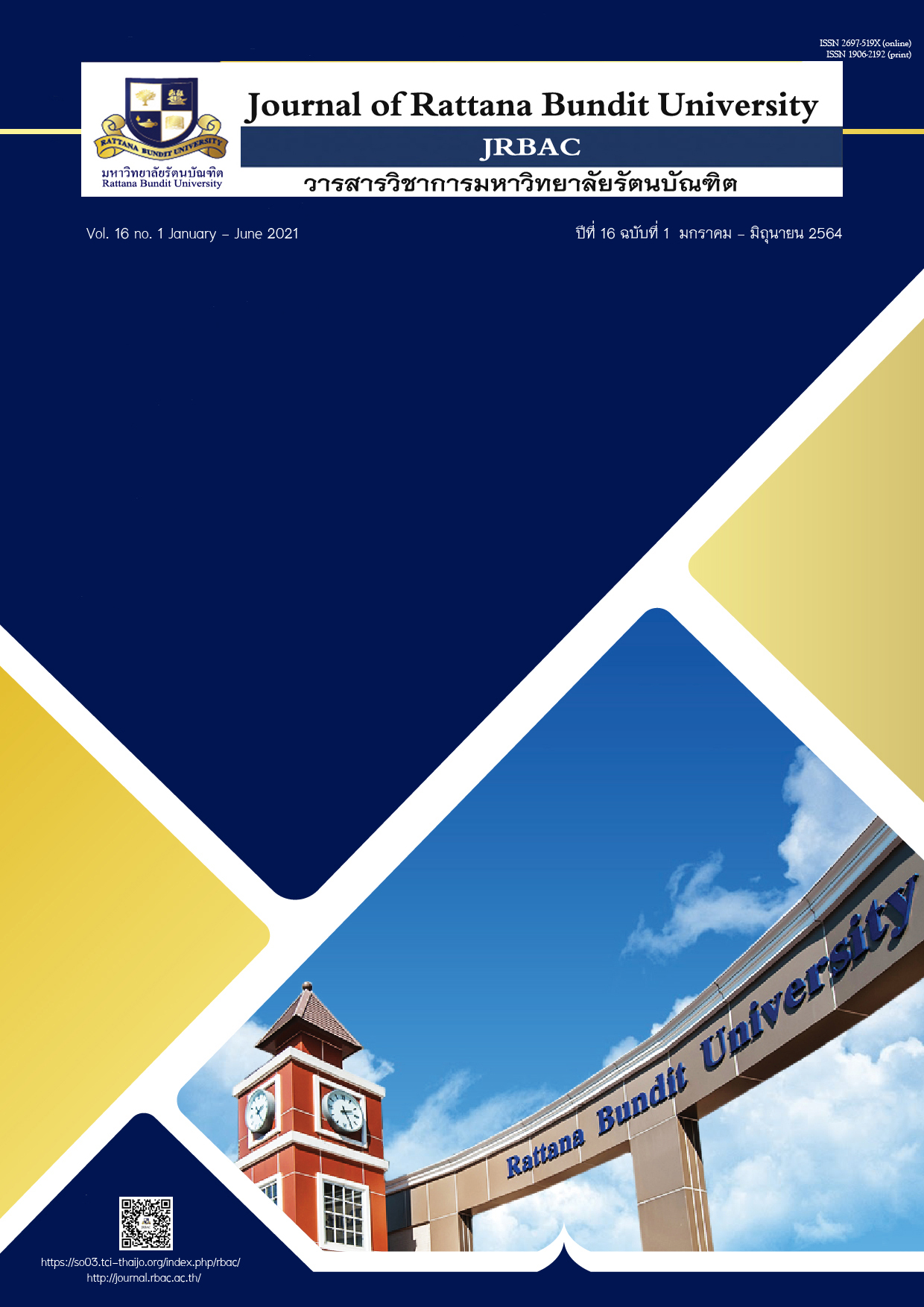The study of Primary School Students’opinions on the Robotics Learning Model Based On Social Information Processing To Enhance Social Skills
Main Article Content
Abstract
This paper studies primary school students’ attitudes towards the impacts of educational robotics within the social information processing framework and on social skills enhancement in students. A purposive sample of 302 students was collected from seven schools. The study relies on a student questionnaire for rating educational robotics impacts on his or her social skills enhancement, which divided into four parts: (1) general information, (2) a social skill question set (3) an educational robotics question set, and (4) suggestions. Mean values and confidence intervals were then calculated from the questionnaire results. Both Part 1 and Part 2 had a confidence interval of 0.97, while Part 3 had 1.0. From the total of five different sub-topics in Part 2 and 3, learning activities for educational robotics, especially under the sub-sub-topic of “educational robotics activities were held at a suitable time for the students,” with the highest mean value of 3.79, followed by social expression with a mean of 3.76, self-emotion control (3.73), emotional expression (3.70), and learning environment for educational robotics (3.44), respectively. For Part 4, overall comments revealed that most students wanted to have 1-2 hours of robotics classes.
Article Details

This work is licensed under a Creative Commons Attribution-NonCommercial-NoDerivatives 4.0 International License.
References
Huitt, W. (2003). The information processing approach to cognition. Educational Psychology Interactive. Valdosta, GA: Valdosta State University. Retrieved from http://www.edpsycinteractive.org/topics/cogsys/infoproc.html
Iamsupasit, S.(1998). Theories and techniques in behavior modification. Bangkok: Chulalongkorn University Press. (in Thai)
สมโภชน์ เอี่ยมสุภาษิต. (2541). ทฤษฎีและเทคนิคการปรับพฤติกรรม. กรุงเทพฯ: สำนักพิมพ์แห่งจุฬาลงกรณ์
มหาวิทยาลัย.
Klomklieng, D. (2003). Building a social skills scale for junior high school students Bangkok (Master's Thesis). Srinakharinwirot University, Bangkok. (in Thai)
ดาราวรรณ กล่อมเกลี้ยง. (2546). การสร้างแบบวัดทักษะทางสังคมสำหรับนักเรียนชั้นมัธยมศึกษาตอนต้น กรุงเทพมหานคร (ปริญญามหาบัณฑิต). มหาวิทยาลัยศรีนครินทรวิโรฒ, กรุงเทพฯ.
Maneetham, D. (2016). ROBOT usage scriptures. Bangkok: SE-EDUCATION.
เดชฤทธิ์ มณีธรรม. (2559 ). คัมภีร์การใช้งานหุ่นยนต์ ROBOT. กรุงเทพฯ: ซีเอ็ดยูเคชั่น.
Ministry of Education. (1999). The National Education Act 1999. Bangkok: Teachers Council of Thailand Printing House Ladprao. (in Thai)
กระทรวงศึกษาธิการ. (2542). พระราชบัญญัติการศึกษาแห่งชาติ พุทธศักราช 2542 . กรุงเทพฯ: โรงพิมพ์คุรุสภาลาดพร้าว.
Pornkul, C. (2011). Teaching thought processes: Theory and application. Bangkok: Chulalongkorn University Press.
ชนาธิป พรกุล. (2554). การสอนกระบวนการคิดทฤษฎีและการนำไปใช้. กรุงเทพฯ: สำนักพิมพ์แห่งจุฬาลงกรณ์มหาวิทยาลัย.
Riggio, Ronald E. (1986). Assessment of basic social skills. Journal of Personality and Social Psychology, 51(3), 649-660.
Surang Kowtrakul. (2016). Educational Psychology (12nd ed.). Bangkok: Chulalongkorn University Press. (in Thai)
สุรางค์ โคว้ตระกูล. (2559). จิตวิทยาการศึกษา (พิมพ์ครั้งที่ 12). กรุงเทพฯ: สำนักพิมพ์แห่งจุฬาลงกรณ์มหาวิทยาลัย.
Yingdamnun, K., Phusuwan, T., Trakulsunthorn, C., Sarutipakorn, P., & Hongsawat, S. (2018). Social skills of undergraduate students receiving group counseling based on the concept of rational, emotional, and behavioral considerations. Journal of Integrated Social Sciences, 5(1), 137-163. (in Thai)
กุลพัฒน์ ยิ่งดำนุ่น ธนปพน ภูสุวรรณ ชลิดา ตระกูลสุนทร พงษ์ศักดิ์ ศรุติปกรณ์ และ ศลาฆนันท์ หงส์สวัสดิ์. (2561). ทักษะทางสังคมของนักศึกษาระดับปริญญาตรีที่ได้รับการให้คำปรึกษากลุ่มตามแนวคิดการพิจารณาเหตุผลอารมณ์และพฤติกรรม. วารสารสังคมศาสตร์บูรณาการ, 5(1), 137-163.


